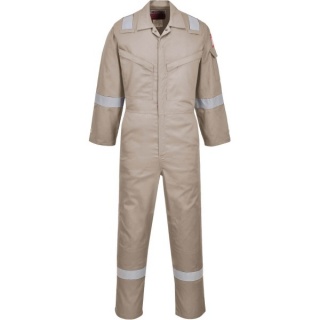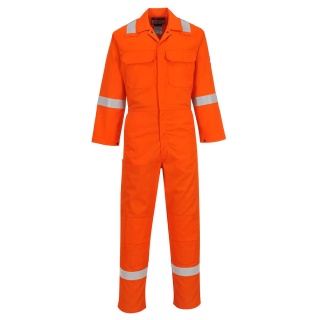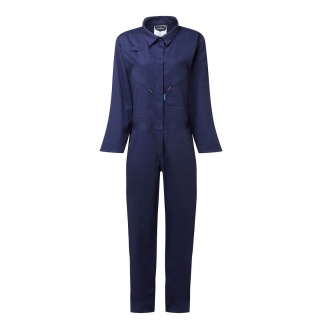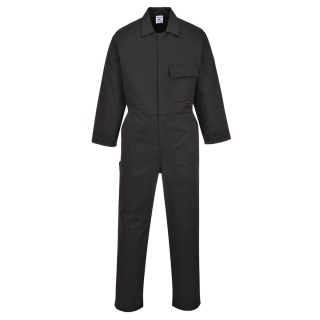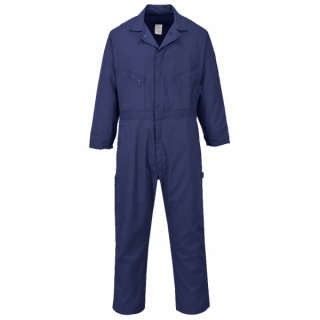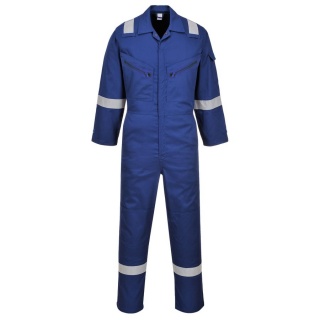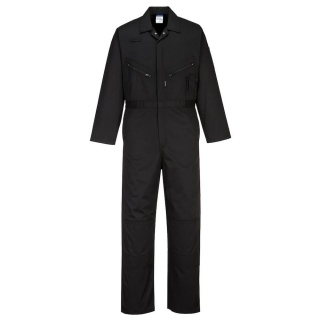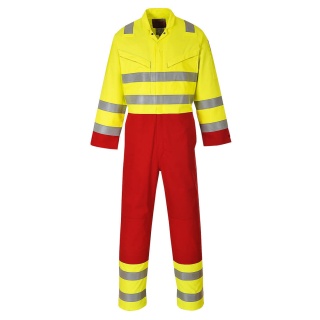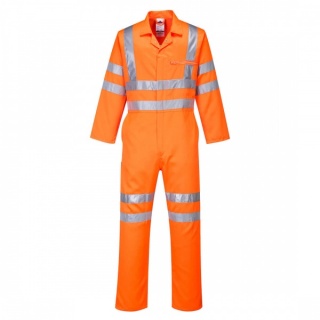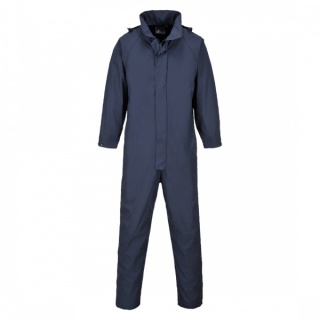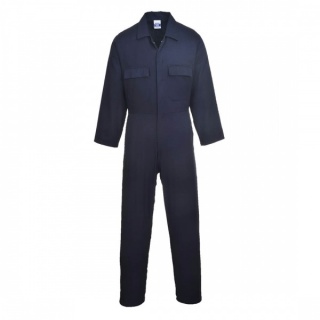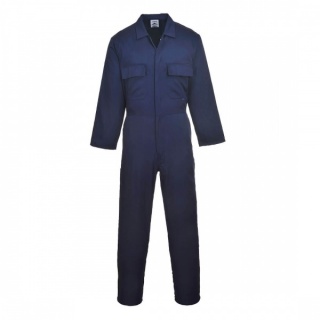Portwest AF53 Fabric Information:
 Araflame Plus, 150g
Araflame Plus, 150g
Constructed from 93% Meta-aramid which provides outstanding heat and flame resistance combined with 5% Para-aramid for strength. Araflame Plus is inherently anti static by incorporating 2% carbon fibre.
- EN ISO 11612 A1 + A2, B1, C1, F1
- EN 1149
- ASTM F1959/F1959M-12 ATPV 5.9
Portwest AF53 Features:
This super lightweight coverall offers outstanding flame resistant protection. The Araflame fabric is soft and breathable but provides excellent tear and tensile strength. Ideal for a variety of industries including oil and gas, petrochemical and many more. Coverall features include triple stitching throughout, secure pockets and waist elastication for ease of movement.
- CE certified
- Inherent flame resistant qualities will not diminish with washing
- Protection against radiant
- convective and contact heat
- Flame resistant industrial wash tape
- Triple-stitched seams for extra durability
- Radio loop for easy clipping of a radio
- Two-way zip for quick and easy access
- Durable
- strong and long lasting brass zips
- Hook and loop cuffs for a secure fit
- Two tier knee pad pockets allowing two positioning options
- 8 pockets for ample storage
- Sleeve pocket
- Two rear patch pockets
Product Technical Information
Standards
- ELIM TESTING IN PROGRESS
- EN 1149 -5
- ASTM F1959/F1959M-12 ATPV 5.9 CAL/CM2 (HAF 63.1%)
- EN ISO 11612 A1+A2, B1, C1, F1
Washcare
Documentation
EN ISO 11612:2015 - Protective Clothing Against Heat and Flame
The Performance requirements set out in this international standard are applicable to garment, which could be worn for a wide range of end uses, where the is a need for clothing with limited flame spread properties and where the used can be exposed to radiant, convective or contact heat or molton metal splashes.
This test uses standard methods and conditions to predict the performance of fabric/garment in the event of contact with heat or flames. Garment features such as seams, closures and logos must be tested as well as the fabric. Tests must be carried out on pre=treated components according to the manufacturers care label.
Specific Testing is listed below:
- Dimensional Charge
- Limited Flame Spread (A1+A2)*
- Convective Heat (B) – 3 Levels
- Radiant Heat (C) - 4 Levels
- Molten Aluminium Splash (D) – 3 Levels
- Molten Iron Splash E - 3 Levels
- Contact Heat (F) – 3 Levels (Temp 250 Degrees Celcius)
- Heat Resistance at a temperature of 180 Degrees Celcius
- Tensile Strength Must meet a minimum of 300N
- Tear Strength must meet a minimum of 15N
- Bursting Strength
- Seam Strength
Garment Design requires that coverage must be provided from the neck to the wrist and to the ankles.
Optional Testing includes water vapour resistance and manikin testing for overall burn prediction.
*This test must be carried out on fabric and seams.
EN 1149:2018 - Protective Clothing - Electrostatic Properties - Part 5. Material Performance and Design Requirements.
This European Standard is part of a series of standards for test methods and requirements for electrostatic properties of protective clothing. The standard specifies material and design requirements for garments used as part of a total earthed system, to avoid incendiary discharges. The requirements may not be sufficient in oxygen enriched flammable atmospheres. This standard is not applicable for protection against mains voltages.
EN 1149 consists of the following parts:
EN 1149-1: Test Method for measurement of surface resistivty.
EN 1149-2: Test Method for measurement of the electrical resistance through a material (Vertical resistance)
EN 1149-3: Test Methods for measurement of charge decay.
EN 1149-4: Garment Test (under development)
EN 1149-5: Material Performance and design requirements.
Electrostatics dissipative protective clothing shall be able to permanently cover all non-complying materials during normal use. Conductives parts (Zips, Buttons etc) are permitted provided they are cover by the outermost material when in use.
